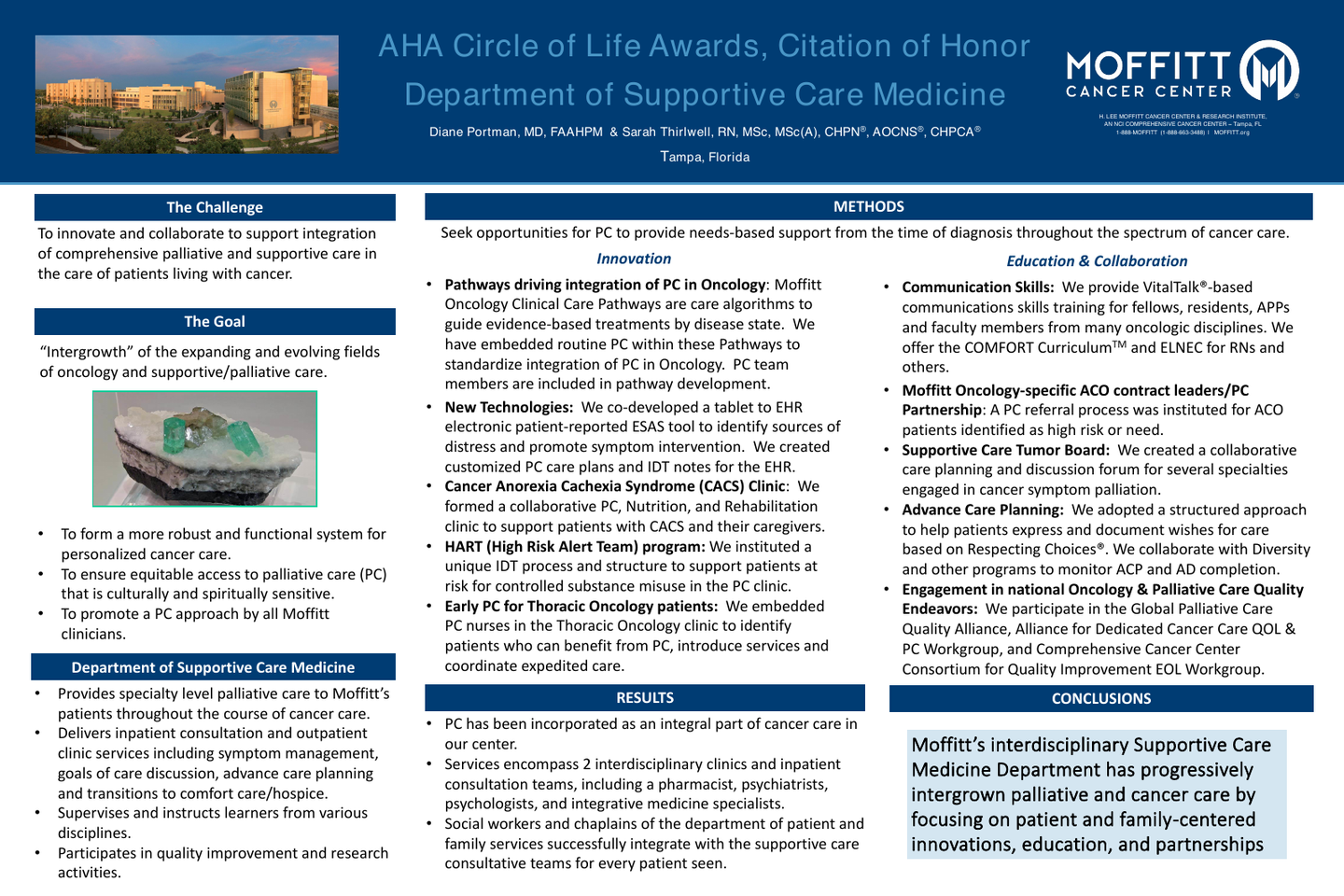AHA Circle of Life Awards, Citation of Honor, Department of Supportive Care Medicine, Moffitt Cancer Center
The Challenge
Innovations and collaborations to support integration of comprehensive palliative and supportive care in the care of patients living with cancer.
The Goal
“Intergrowth” of the expanding and evolving fields of oncology and supportive/palliative care, to form a more robust and functional system for personalized care.
Methods
We seek opportunities for palliative care to provide an extra layer of support whenever needed throughout the spectrum of cancer care.
We partner with others to include supportive care methods as Moffitt clinicians develop care pathways for dozens of diseases and conditions. Supportive care team members are at the table when specialists discuss how they care for different kinds of patients. Consensus is gained up front on likely scenarios in which supportive care should be embraced and supportive care methods are incorporated into cancer clinical care pathways as they are built. Supportive Care team members are called upon for their expertise when pathways need to be adjusted to adapt to new evidence or needs, using the growing evidence base for palliative and supportive care and leveraging the value that the team has brought to everyday patient care.
In addition to pathway guidance, palliative care nurses are embedded into specific oncology clinics to help oncologists screen patients and refer into supportive care as needed.
The team created a tablet-based app on which clinic patients can rate symptoms and the information flows directly into the center’s electronic health record, where it can be seen right away by a clinician at the start of each visit to focus care on the greatest needs.
As cancer patients often have trouble with appetite, weight loss and weakness, Moffitt’s supportive care program created an easily accessible, multidisciplinary Vitality Clinic to work with patients and family caregivers dealing with cancer anorexia cachexia syndrome and to identify other supportive care needs.
The team teaches oncologists primary palliative care skills, such as having difficult conversations around prognosis and progression of disease. Team members provide workshops based on the VitalTalk platform to medical fellows and nurse practitioners and a program nurse teaches the COMFORT curriculum to hospital nurses.
Results
The support of hospital leadership has led to the incorporation of supportive care as an integral part of the cancer center’s ongoing plan for personalized care. The supportive care medicine department now maintains two interdisciplinary outpatient clinics and two inpatient teams staffed by physicians, nurse practitioners, registered nurses, psychiatrists, psychologists and a pharmacist. The social workers and chaplains of the cancer center’s department of patient and family services successfully integrate with the supportive care consultative teams.
Conclusions
Moffitt’s interdisciplinary Supportive Care Medicine program has progressively intergrown supportive and cancer care by focusing on patient and family-centered innovations and service.
Author
Diane Portman MD
Chair, Department of Supportive Care Medicine
Moffitt Cancer Center
12902 Magnolia Dr., MRC-SCM
Tampa, FL, 33612
(813) 745-7383
